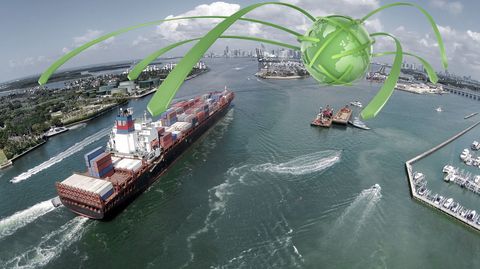The strained diplomatic relationship between Iran and the rest of the global community has been a key factor in the evolution of the political landscape in the last few years, affecting world markets in a number of ways.
As such, the recent news that certain sanctions placed on the country by industrialised nations are being lifted is likely to have a number of implications for international trade, creating new opportunities for businesses in Iran and beyond - while also creating potential challenges for any companies wishing to take advantage of the new opportunities.
With several leading nations now encouraging local businesses to examine the possibilities that might be offered by trading with the Iranian market, it is clear that the lifting of the sanctions could have an important influence on the future development of global trade.
The background
The programme of sanctions imposed on Iran have their roots in the Iranian Revolution of 1979, which prompted the US to take steps to limit trade with the country. These were gradually expanded over time, particularly after the Iranian government refused to suspend its uranium enrichment programme.
In order to deter the country from continuing to invest in nuclear research with potential military applications, the UN passed Resolution 1696 in 2006, a stringent series of restrictions designed to limit the trade of fuel, financial services and other commodities between Iran and other leading nations.
The impasse between Iran, the EU and the P5+1 group of world powers - China, France, Germany, Russia, the UK and the US - was broken last year with a deal to ensure the nuclear programme will be exclusively peaceful from now on.
This Joint Comprehensive Plan of Action (JCPOA) passed into law in October 2015 and was finally implemented on January 16th this year, with the International Atomic Energy Agency verifying that Iran has implemented its key nuclear-related measures, allowing the sanctions to be lifted.
The sanctions
As such, the EU has now scrapped all of its nuclear-related economic restrictions, including an embargo on buying Iranian crude oil and an end to limitations on Iranian trade, shipping and insurance. Iranian organisations or individuals blacklisted due to alleged nuclear-related activities can once again do business with the EU following this move.
The US, meanwhile, has lifted its sanctions on the financial, insurance and banking-related sectors, as well as lifting the restrictions preventing the trade of gold, precious materials and automotive components, and permitting transactions with Iran's shipping and shipbuilding sectors and port operators.
Other countries are also following suit, with Canada among those nations confirming that their own sanctions against Iran are to be amended, with efforts made to reestablish a dialogue with the country.
Implications
If current prices persist, it is expected that the lifting of energy sanctions could see Iran increase its revenue from oil exports by £6.9 billion by next year, with the scrapping of banking sanctions to allow billions of dollars in foreign reserves currently frozen in accounts around the world to be brought back. Iran's central bank estimates this figure at around $30 billion, while the US Treasury calls it closer to $50 billion.
Meanwhile, Iranian first vice-president Eshaq Jahangiri believes the move will save the country around $15 billion a year in trade, as the sanctions have added around 15 per cent to the cost of trading with Iran.
Worldwide, the price of oil is likely to drop as supplies from Iran proliferate throughout the market over the coming years, while some countries are actively encouraging the resumption of trade, with UK Export Finance reintroducing cover to support British companies seeking to compete for business in Iran.
However, businesses will still need to exercise caution around the tight restrictions on exports to Iran of any goods, services and technologies that may still be considered sensitive from a security point of view, while numerous legal complications remain that could hold back further investment in Iran.
The US, for example, has only removed secondary sanctions that restrict the dealings of other countries with Iran, with primary sanctions barring US citizens and companies from business with Iran remaining in place. This creates potential grey areas surrounding foreign subsidiaries of US-based businesses that will need to be considered and navigated carefully.
Nevertheless, the JCPOA represents an important step towards reestablishing Iran as a member of the global trade community, with its implications set to be discussed for some years to come.






